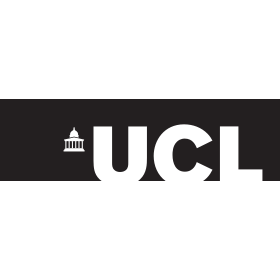

University College London (UCL) is one of the world's top universities. Based in the heart of London, it is a modern, outward-looking institution. At its establishment in 1826, UCL was radical and responsive to the needs of society, and this ethos – that excellence should go hand-in-hand with enriching society – continues today. UCL opened up university education in England to those who had been excluded from it. In 1878, it became the first university in England to admit women students on equal terms with men. Academic excellence and conducting research that addresses real-world problems inform our ethos to this day and our plans for the future. UCL's excellence extends across all academic disciplines; from one of Europe's largest and most productive hubs for biomedical science interacting with several leading London hospitals, to world-renowned centres for architecture (UCL Bartlett) and fine art (UCL Slade School). UCL is in practice a university in its own right, although constitutionally a college within the federal University of London. With an annual turnover exceeding £1 billion, it is financially and managerially independent of the University of London. The UCL community UCL's staff and former students have included 29 Nobel prizewinners. It is a truly international community: more than one-third of our student body – more than 35,000 strong – come from 150 countries and nearly one-third of staff are from outside the UK. UCL offers postgraduate research opportunities in all of its subjects, and provides more than 200 undergraduate programmes and more than 400 taught postgraduate programmes. Approximately 54% of the student community is engaged in graduate studies, with about 29% of these graduate students pursuing research degrees. Quality of UCL's teaching and learning UCL has the best academic to student ratio in the UK (1:10), enabling small class sizes and outstanding individual support (Times 2013). In the Research Excellence Framework 2014 (REF2014, published in December 2014) – a new system for assessing the quality of research in UK higher education institutions – UCL was rated the top university in the UK for ‘research power’ (the overall quality of its submission multiplied by the number of FTE researchers submitted). It was rated top not only in the overall results, but in each of the assessed components: publications and other research outputs; research environment; and research impact. REF2014 confirmed UCL’s multidisciplinary research strength, with many leading performances across subject areas ranging from biomedicine, science and engineering and the built environment to laws, social sciences and arts and humanities. Equality UCL is proud of its longstanding commitment to equality and to providing a learning, working and social environment in which the rights and dignity of its diverse members are respected. Location and working environment Based in Bloomsbury, UCL is a welcoming, inclusive university situated at the heart of one of the world's greatest cities. UCL's central campus is spread across approximately three square kilometres of central London. Further details at http://www.ucl.ac.uk/
| Subject | Rank |
|---|
| Subject | Rank |
|---|---|
Human Biological Sciences | 2 |
Pharmacy & Pharmaceutical Sciences | 2 |
Medical Technology | 4 |
Psychology | 4 |
Geography | 5 |
Public Health | 6 |
Biological Sciences | 8 |
Public Administration | 11 |